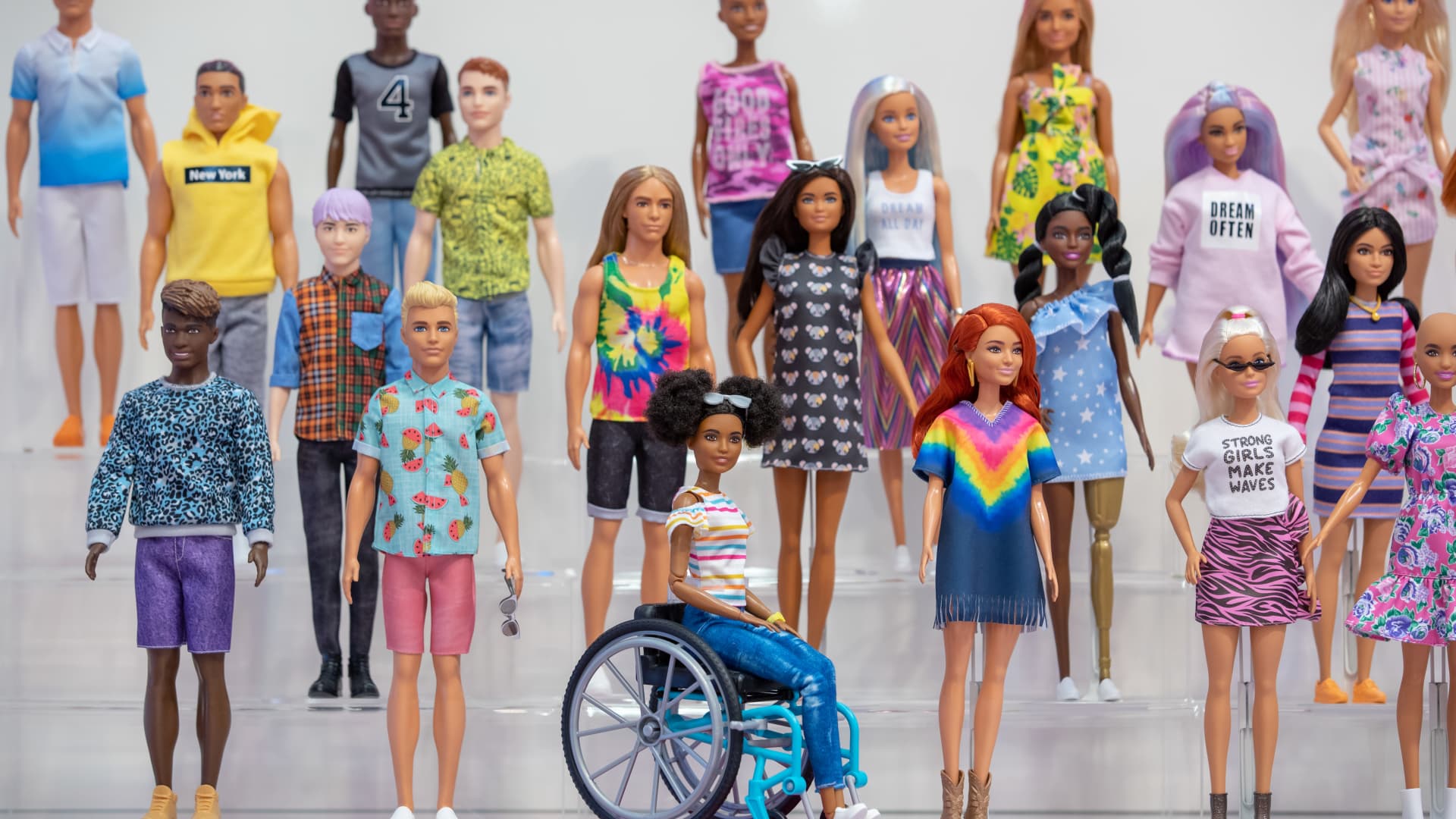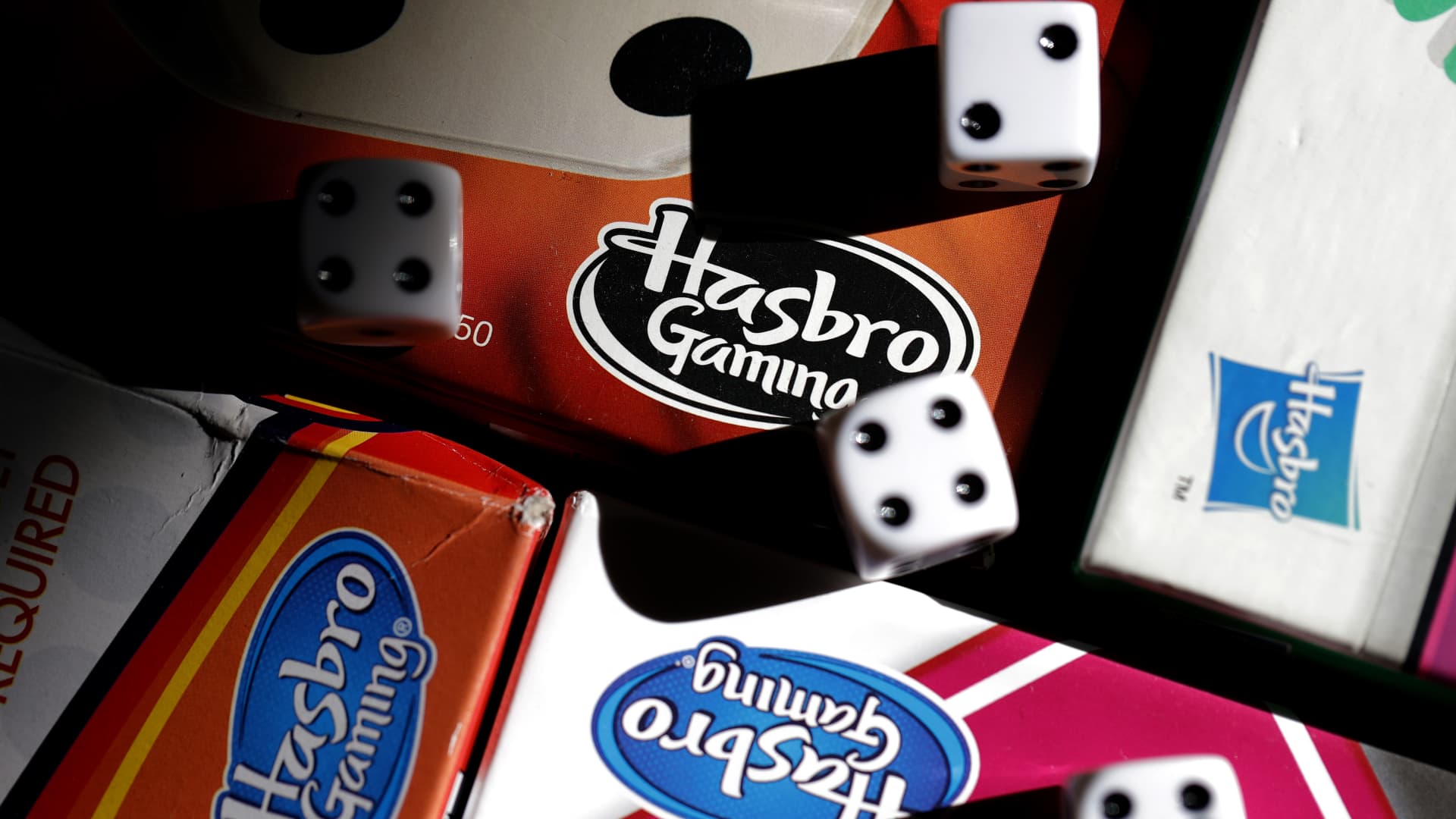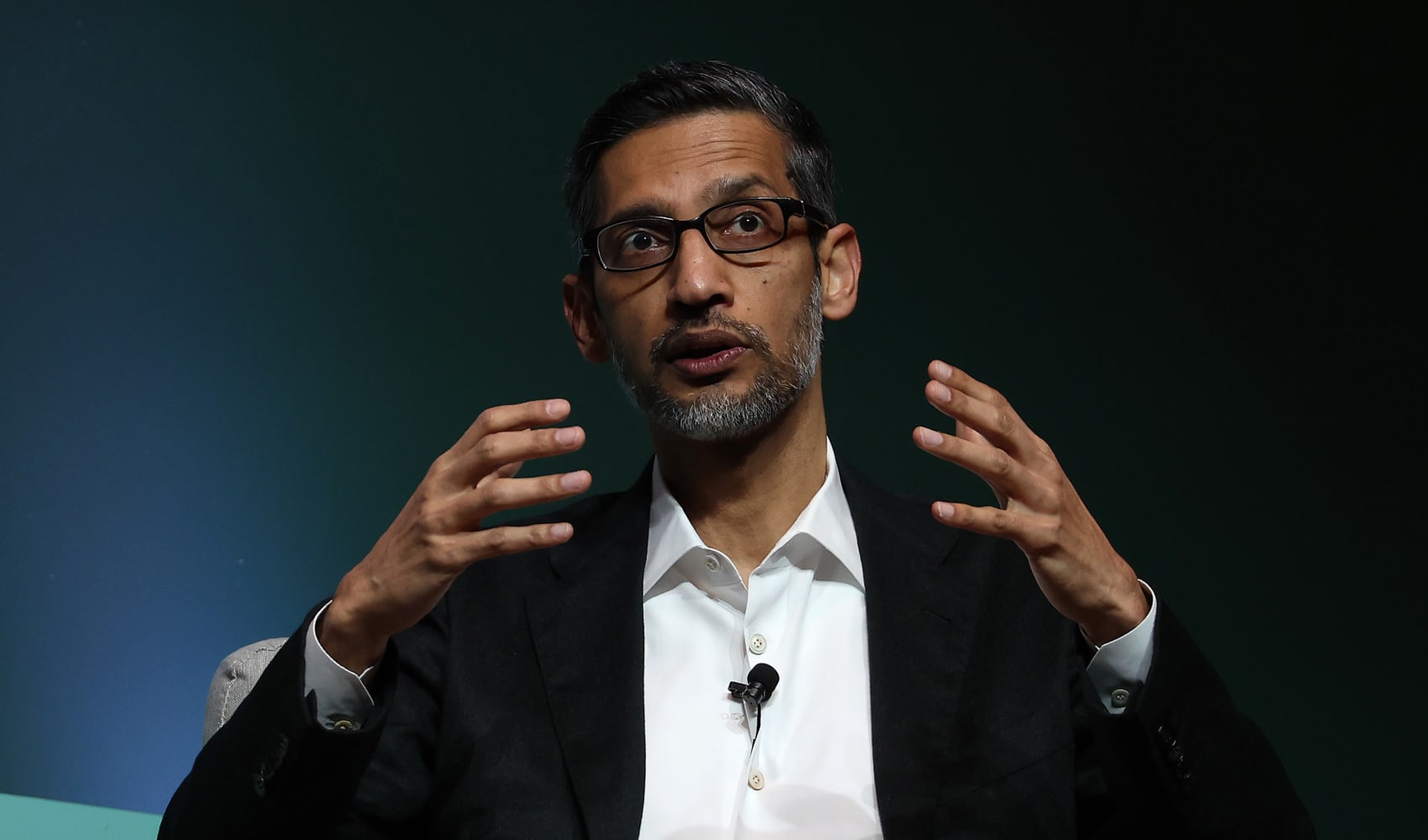
- Hasbro and Mattel have very different ideas about the future of the toy industry.
- Mattel is projecting that consumers will accept new price increases and continue to buy at the same volume and velocity that they have been doing during the pandemic.
- Conversely, Hasbro has tempered its optimism, expecting toy sales growth to recede over the next two years as spending on travel and leisure rebounds.
Hasbro and Mattel have very different ideas about the future of the toy industry.
While both of the country's dominant toy companies reported strong revenue increases during the crucial holiday quarter and throughout 2021, only one of them expects continued robust growth.
"There is a sense of confidence and optimism behind Mattel," said Gerrick Johnson, an analyst at BMO Capital Markets. "And a defensiveness from Hasbro."
Get Boston local news, weather forecasts, lifestyle and entertainment stories to your inbox. Sign up for NBC Boston’s newsletters.
Mattel projects that consumers will accept new price increases and continue to buy at the same volume and velocity that they have been doing during the pandemic. However, much of that sales growth came on the backs of parents who turned to toys as a way to fill the hours spent at home during the pandemic and was helped by wallets that were padded by stimulus payments and child tax credits.
That has led to tempered optimism at Hasbro, which expects sales growth over the next two years to recede as spending on travel and leisure rebounds.
"That piece is something investors are wrestling with today," said Stephanie Wissink, managing director at Jefferies. "Why is Hasbro's view of the core toy business somewhat more conservative versus Mattel's view of the toy business?"
Money Report
Mattel's optimism
Mattel's optimism comes on the heels of a successful turnaround, one that led to the company's Barbie brand posting its best full-year sales results in its more than 60-year history. Even the company's previously beleaguered brands including American Girl, Fisher-Price and Thomas and Friends were revitalized.
Mattel's revenue jumped 10% to around $1.80 billion in the fourth quarter, beating analysts' estimates of $1.66 billion. Excluding items, it earned 53 cents per share, above estimates of 30 cents.
"Now the question is sustainability," Wissink said. "Mattel is taking the approach of 'Euromonitor told us 5%, and, therefore, we think the toy industry will grow faster for longer and that it is inelastic,' " she said.
That has led the company to update its expectations for the next two years. On Wednesday, during Mattel's earnings call, it said it expects net sales in 2022 to grow 8% to 10%, and then expand at a high single-digit pace the following year. Previously, the company had predicted growth in the mid-single digits for both years.

"2021 has been another year of strong financial performance," said Anthony DiSilvestro, the company's chief financial officer, on the call Wednesday. "We have made significant progress over the last four years, and as Ynon [Kreiz, Mattel's CEO,] noted, our turnaround is now complete. Our guidance for 2022 and goals for 2023 reflect our momentum and confidence in our future performance."
Mattel's stock was up more than 13% during the week. On Monday, it closed at $24.20, up 7 cents, putting its market value at $8.48 billion. Analysts currently hold an average target price for the company at $30, or a 24% upside for the future.
Linda Bolton Weiser, an analyst at D.A. Davidson, is even more optimistic. She upgraded her price target to $45 from $38 on Monday, citing the potential for growth in the coming years.
Adding to Mattel's confidence is the recent news that it won back the licensing rights to Disney's princess dolls. The loss of this license in 2016 left a huge hole in the company's business portfolio that it has only recently been able to recover from.
The company will also see the release of its first film under the Mattel Films banner in 2023. "Barbie" will star Margot Robbie and be directed by Academy Award winner Greta Gerwig.
Mattel has yet to set release dates for about a dozen feature films based on its brands, including Hot Wheels, Magic 8 Ball, Polly Pocket, Rock 'Em Sock 'Em Robots, Uno and Barney. The strategy for its fledgling film division is to lean on third-party companies to finance each project and partner with a studio and distributor. That strategy helps to mitigate the company's financial risk.
Mattel is expected to discuss further details about its growth strategy on Friday during its annual analyst presentation.
Hasbro's caution
Meanwhile, archrival Hasbro's outlook for the toy industry is much more conservative.
"Hasbro is looking at real time data and they are also heavily informed by an economic view that we are entering a phase of some degree of uncertainty around consumers' willingness to digest inflation," Wissink explained.
Last week Hasbro said it was expecting revenue to grow in the low single digits in 2022. Deborah Thomas, the company's chief financial officer, said that while the toy and game industry has grown at an above-trend rate over the last two years, the toymaker does not foresee this continuing, saying it expects the industry will slow or decline in the coming year.
Also of note, Hasbro has a new CEO starting on Feb. 25. Chris Cocks, the former Wizards of the Coast president, is taking the reins from interim CEO Rich Stoddart, who held the position after Brian Goldner passed away in October 2021. Analysts speculated that Hasbro may be intentionally setting its goals low for the next few years as Cocks settles into his new post.
Additionally, Hasbro is taking into account the impact the pandemic has had on its film production. Its newest "Transformers" film was delayed until 2023, which translates into delays in ticket sales and product lines. What's more, Hasbro was the company that held the Disney princess license and lost out to Mattel.

"The stock went down," explained Eric Handler, media and entertainment analyst at MKM Partners. "The Street had to make adjustments in 2023, adding "Transformers," but taking out the Disney princess license. Hasbro still has an excellent story going on. Its media transformation is just beginning to unfold. But because of those puts and takes, I think people viewed it as a mixed situation."
Hasbro's stock ended the week basically flat, despite a significant fourth-quarter earnings beat. Revenue rose 17% to $2.01 billion, above analysts' estimates of $1.87 billion, despite inventory shortfalls during the holiday season due to global supply chain disruptions.
Shares of Hasbro closed at $94.56 on Monday, up 17 cents. Analysts currently hold an average price target of $112, an upside of 20%. It's current market value is $13.05 billion.
Under the leadership of the late Goldner, Hasbro transformed from a toy company to a full-blown media competitor. The acquisition of Entertainment One in 2021 solidified Hasbro's strategy, making it possible to act as a studio for many projects.
"This is the genius of Brian Goldner," BMO's Johnson said. "He understood brands are holistic. Entertainment plus toys equals a bigger piece of business. And when you put storytelling behind a toy brand, it lasts longer."
While Hasbro's toy division remains 62% of its revenue, or about $3.98 billion in 2021, there are now other aspects of its business that are growing in importance. In 2021, Wizards of the Coast and digital gaming accounted for $1.28 billion in revenue, or 20% of the company's total, and entertainment was 17.9% or $1.15 billion.
"Mattel is going more horizontal while Hasbro has gone more vertical," Johnson said. "Time will tell which is the right way to go about it."






